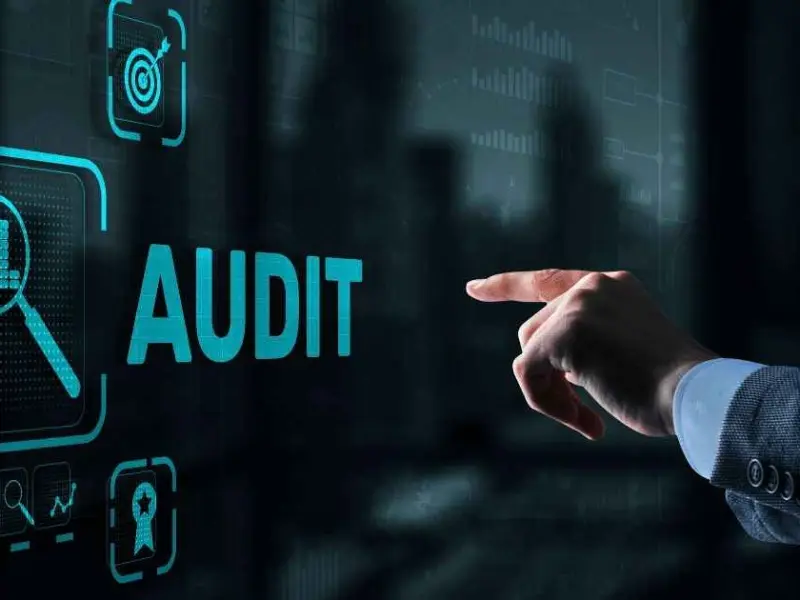- Ensuring the integrity of processes, transactions, and data is critical for businesses, governments, and organisations.
- An audit trail, a concept central to this endeavour, provides a step-by-step record that details the history of actions, decisions, and data changes.
- It is a critical tool in a range of sectors, from finance and healthcare to software development and cybersecurity.
Defining an audit trail
An audit trail, also known as a ‘log,’ is a chronological set of records that documents the sequence of activities in a system, operation, or process. It tracks everything from when a specific event happened, who or what triggered it, and what changes or actions resulted. These records allow for transparency, accountability, and traceability, giving organisations the ability to verify the integrity of their systems.
There are different types of audit trails based on the context. For instance, in a financial audit, an audit trail refers to the documented evidence of every financial transaction, ensuring that an external auditor can verify the accuracy of financial statements. In cybersecurity, an audit trail logs the access and activity of users within a network, helping identify suspicious behaviour or unauthorised access.
Also read: The crucial role of business process automation in modern enterprises
Why audit trails matter?
Audit trails are fundamental for various reasons, ranging from compliance to improving operational efficiency. Below are some key reasons why they are indispensable:
Accountability and transparency: Audit trails create a transparent environment by capturing all relevant activities within a process or system. This helps ensure that employees, systems, and software are following established guidelines and procedures. If any discrepancies occur, an audit trail provides a clear record that can be referenced to understand what happened, who was responsible, and whether any corrective actions are needed.
Compliance with regulations: In many industries, compliance with laws and regulations is mandatory, and audit trails play a pivotal role in achieving this. For example, in the financial sector, regulations like the Sarbanes-Oxley Act (SOX) require organisations to maintain accurate financial records. Similarly, the General Data Protection Regulation (GDPR) mandates the protection of personal data, and audit trails help ensure compliance by documenting data access and changes.
Fraud detection and prevention: Audit trails help organisations detect fraudulent activities by maintaining a comprehensive record of all actions taken. Whether it’s a financial transaction or an employee accessing sensitive information, the audit trail ensures that any unusual or unauthorised activity can be detected, flagged, and investigated promptly.
Data integrity and security: In the world of digital information, ensuring data integrity is paramount. Audit trails help verify the authenticity of data by recording every interaction with it. In cases of security breaches or data corruption, audit logs can be analysed to determine the root cause, such as who accessed the data, when, and how it was altered.
Also read: Why is encryption important for data security?
Efficiency and process optimisation: While the primary focus of an audit trail may be security and compliance, it also offers insights into workflow efficiency. By analysing the logs, organisations can identify bottlenecks or inefficiencies in their processes, which can then be optimised. For example, if an audit trail reveals frequent delays in approvals within a business process, management can investigate the reasons behind this and take steps to improve the workflow.
Types of audit trails
Depending on the system or process being audited, there are different types of audit trails:
Financial audit trails: These track all financial transactions within an organisation. The trail may include records of invoices, payments, bank transfers, and receipts. In the event of an audit, this documentation allows auditors to verify the accuracy of financial statements and ensure there has been no manipulation or fraud.
Operational audit trails: Operational audit trails record actions within business processes. This could include tracking the status of a product through different stages of manufacturing or monitoring customer service interactions. These logs help businesses ensure their operations are running smoothly and allow them to investigate any inefficiencies or failures.
Security audit trails: Security audit trails focus on the monitoring and recording of user activities and system events within IT systems. These logs are particularly important in detecting unauthorised access or potential cybersecurity threats. They can capture everything from login attempts to file access and software changes, helping to identify potential security breaches.
System audit trails: This type of audit trail records interactions with computer systems. It monitors user access, modifications to system settings, and application changes. These logs are invaluable when troubleshooting system errors or investigating security incidents, as they provide a detailed record of all system-level interactions.
Implementing an audit trail
For organisations looking to implement an audit trail, there are several best practices to follow:
Automation: Modern systems allow for automated logging, ensuring that audit trails are captured in real-time without human intervention. This reduces the risk of errors and omissions.
Centralisation: A centralised system for storing audit logs ensures that records are easily accessible and not scattered across various locations. This not only improves efficiency but also enhances security.
Regular review: Regularly reviewing audit logs can help organisations spot issues early and improve their processes. By monitoring these logs periodically, businesses can stay ahead of potential problems rather than waiting for them to escalate.
Data protection: Audit logs themselves need to be protected from tampering or deletion. Implementing secure storage solutions and access controls ensures that audit trails remain trustworthy.

